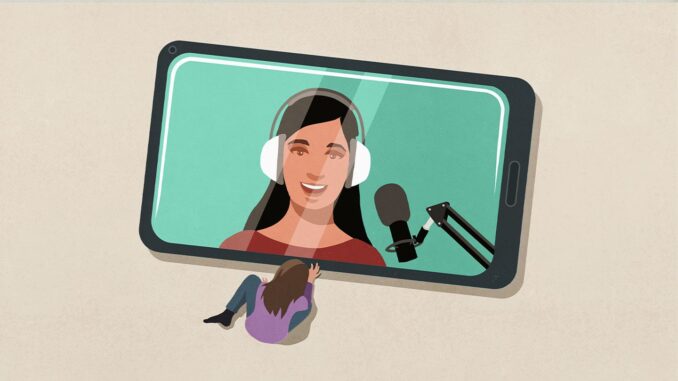
By Jaida Dent
Social media allows us to connect with others from far and wide. We share life hacks, OOTDs (Outfit of the Day), and even document our daily routines. We create a sense of familiarity with one another and consume media that makes us feel closer to our favorite celebrities and influencers. But is this closeness a reality or a parasocial figment of our imagination?
A parasocial relationship refers to a one-sided connection, where one person is devoting a large amount of time and energy to a person who is often unaware of them. These kinds of relationships are common between celebrities and their fans. We can all admit to crushing on celebrities before. When we were younger, we felt connected to the characters on our favorite TV show. We would show our love and dedication to them by purchasing posters, and merchandise, even begging our parents for their live shows. It was easy to feel this way before because we eventually “grew out” of the relationships like a phase, but today we see parasocial relationships persisting through our use of social media.
An article from The Atlantic delves deep into parasocial relationships, saying they aren’t a bad thing, but can take a turn for the worse when those engaged in the relationship “lose touch with reality”. One example of a parasocial relationship gone array is from last August, when actress and talk show host, Drew Barrymore, was having a speaking engagement with actress and singer Renee Rapp. While discussing Rapp’s latest album, a man by the name of “Chad Michael Busto” approached the stage claiming, “You know who I am. I need to see you at some point while you’re in New York.” While Barrymore was able to joke it off by praising Rapp’s urgency, it was still a scary situation for both.
This isn’t Busto’s first time engaging with celebrities in this manner. A month later, he was arrested for barging into Emma Stone’s dressing room at a New York City fashion show and exclaiming “I want to marry Emma Watson. Let me speak to Emma Watson. Let me take a photo with Emma Watson.” Here, we see Busto’s extreme actions to confront his parasocial partner, without regard for Barrymore’s safety.
The most common examples we see occur from behind the screen. On Jan. 26, rapper Megan Thee Stallion released the song, “Hiss.” The snake-titled song serves as a follow-up to her song “Cobra” from last Nov., where she continues to share her sentiments about people who have spoken negatively about her. In the song, she refers to “Megan’s Law,” which requires sex offenders to be placed on a registry, therefore making their status public. While not naming anyone specifically, fans speculated that the line targeted A-List rapper Nicki Minaj because of her husband’s status as an offender and Minaj’s quiet, but noticed, offenses against Megan.
The internet turned into a battlefield between the respective fanbases: Nicki Minaj’s “Barbz” and Megan Thee Stallion’s “Hotties.” People expressed their embarrassment and disgust for Minaj’s comments, speaking about Megan’s mother, Holly Thomas, who passed in 2019 from a brain tumor. She also repeated the phrase, “Get up on your good foot,” which refers to the incident in July of 2020, where she was shot in the foot by Tory Lanez.
“Barbz” took matters into their own hands when they began to doxx–publish identifying information about an individual online–those who spoke out about Nicki. Extremes have been taken as a result of the incident, such as TikTokers taking back their comments to avoid getting doxxed and Thomas’s gravesite becoming the target of endangerment by onlookers wanting to damage the resting place.
Witnessing this rap beef unfold made many ponder: how did a simple relationship between fan and celebrity reach the point of endangering the lives of others at the mention of her name? Minaj engages with her viewers on Instagram and Twitter and recognizes her fans for how they’ve been supporting her for the last two decades. But instead of using her social media for good, she’s riled her fans up as backup, and let them run wild with their actions.
In this example, we see the participatory partner, the “Barbz,” showing affection for their parasocial partner by any means necessary. The “Barbz” idolization of Minaj and deeming her as their parasocial “Mother” has allowed them to create such harm without remorse, along with a serious detachment from truth and reality. The “Barbz” will excuse Minaj’s actions even when she’s in the wrong. This level of a parasocial relationship is just as dangerous as stalking.
I’m not here to tell you not to support your favorite artists or not come to their defense in conversations with your friends. Rather, be cautious of our level of support. We can always show love, but never at the expense of ourselves. Celebrities can let you into their lives as little and as much as they want, but it’s up to us as consumers to know when we need to “break up” with our parasocial partners.
